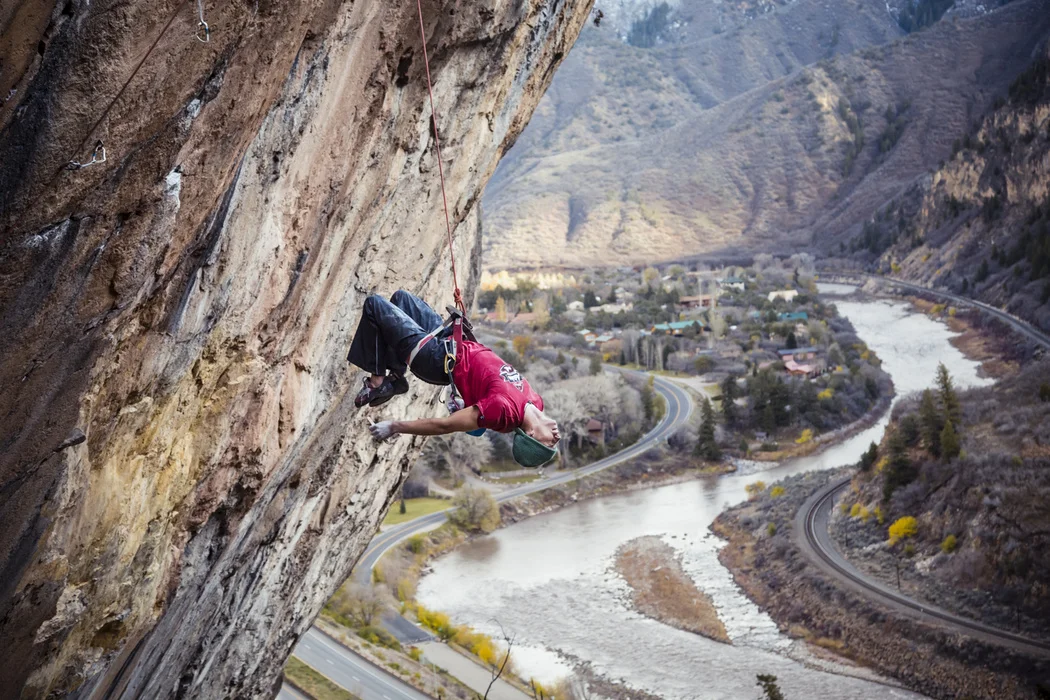10 minute read
the simple life. (Photo Frank Kretchsmann)
Life used to be simple.
As kids we’d embrace perceived failures by crying, throwing a tantrum, and then moving onto the next adventure or random life encounter without a second thought. So what happened in that time from being a child to adulthood?
When did we become afraid to make mistakes? When did we stop experiencing the unknown? When did we stop exploring the world around us with curiosity?
One word –– expectations.
Expectations of ourselves and others, which is natural, create insane barriers when used inappropriately and often. Which I posit, most people have no clue how to use expectations as a tool to engage with the world. Before we delve into the concept of expectations, let’s start at the beginning of where these nasty little buggers even come from.
As a child if you tried something new and failed, like let’s say walking, and fell down more often than you walked did your parents turn around and call you a failure for life? Did the world end? Honestly, did it even really matter?
Not really. There was no expectation for you to walk at such a young age –– but what happened when you didn’t learn how to walk after age one? Going further, what if your parents were olympic runners, or astro-physicists and you can barely add? Something gets perceived as wrong, and a negative expectation is placed on this individual that they should be naturally good at adding or walking.
This conceptual formula is a slippery-slope into the realm of imaginary expectation. One generally brought on by comparing society around us which then becomes internalized. The adage of my parents are doctors so I need to do something amazing in my life, and am expected to.
It all starts with a common form of learning that we all go through at a young age. We don’t have enough experience in the world to have freedom of choice, so we get what I like to call the ‘x then y’ learning curve.
If I do ‘x’ action, then ‘y’ will be my consequence.
“If I do my homework, then mom will let me play with my friends,”
“If I eat my vegetables then I get ice cream.”
“If my parents are brilliant, then I should be too.”
simple enough concept (photo Franz Walter)
Sometime around our teenage years, we begin to mature and quickly our construct of the world is disassembled. This is because freedom of choice is added to the equation and the balanced scale of ‘x then y’ tips.
Abstract concepts and internal motivations start to thread their way into our consciousness and all of a sudden multiple outcomes regardless of our actions and work come into our daily lives. Natural factors out of our control begin to bar our way.
Growing up, I wanted to play football in high school. I weighed a whopping 100 lbs and stood at 5’5”. My hormone fed peers were two to three times my size and could literally sit on me and hold me down –– no football for me.
So I moved onto trying to keep up with the valedictorian.
If I studied really hard then I too expected to get a 100% on my triga-calcu-geometron test like my friends. Swing and a miss.
This proved to be fallible thinking, as most of the populace finds out as well. My motivation for the tests were not a self-motivated want, but something that I thought was expected of me. So I half-assed it and got upset when I didn’t do as well as I expected.
Yet, expectations were still placed on events, by ourselves, peers, and guardians. The result? A pandora’s box of complexes that revolved around anxiety, inferiority, inappropriate outbursts, or (in some cases) full on rebellion.
refusal to work (photo Jeff Rueppel)
By now you must be asking, “Ben, what does this have to do with climbing?”
Just stay with me, I’m getting there –– what I’m about to say doesn’t make much sense without an understanding of most people’s programing.
So most of us in our teen and college years are still motivated by external factors, such as, if I get the college degree, then I will get my dream job, and the super-special significant other, and the millions of dollars, and I will be satisfied.
Maybe. Doubtful.
Ever have a friend who seems to have everything going for them, they are successful and from an outside perspective they are “living the dream?” Only to find out years later that they are miserable, or quit their job to move on to a non-profit local gardener’s club? Yet, they seem to have a higher sense of satisfaction. Maybe you are this person.
Why do you think most individuals in Hollywood are miserable and drug addicts even though they seem to have everything?
To clarify I am not saying that everyone should strip themselves of commitment and responsibility to join a nudist colony; that would be the end of society and a really interesting setting for a real-world Lord of the Flies scenario. What I am saying is, get rid of expectation internally.
What does that mean?
Expectation is a tool. When used properly in a realistic setting it can be a great gauge to measure if you or someone else is performing properly.
As in, I kind of expect our politicians to do their job and be diplomatic and represent the populace positively –– this is not a political propaganda statement –– don’t read too much into it.
However; many people have unreasonable levels of expectation that rarely reflect reality. The manipulative significant other that you can never please –– you buy flowers but they are not the perfect ones, or they’re wilted, or they aren’t the right color, or they aren’t the favorite flower:
“How do you not know me?”
Think about it.
These two scenarios are based on external outcomes that you can’t control, but if you have realistic expectations they are easily identified and a course of action can be taken.
But let’s look expectation in the lens that most of us deal with it.
Internally.
Expectations have a nasty habit of ruining life experiences and creating a fantasy world in which people have preconceived notions. When we give into those the world becomes a lot less interesting. Don’t get me wrong, use common sense here. If there is dark alley in the middle of New Orleans, don’t walk down it and become a new addition to a voodoo shrine’s shrunken head set –– but if someone buys you flowers and they aren’t perfect, don’t be disappointed because they don’t match whatever preferences you’ve built into your head.
Let’s look at it this way.
Ever read a crappy book or article (you may be right now) and realize that even though it wasn’t your taste, you were better for it because it helped create a self-awareness or a way of thinking that would have otherwise been unapproachable? Even if it’s an awareness of something you don’t agree with?
I challenge you with a concept:
“What if expectations were replaced with intentions?”
Someone’s third eye is tingling.
Cosmic Debris (5.13b) (Photo: Jeff Rueppel)
Intention as a tool, can be a fluid concept that allows us to adapt to events quickly and efficiently. Which is very useful for climbing projects –– but it’s also dangerous due to negative effects if not used properly.
A lot of people have the ability to set intentions but lack the internal motivation to carry them through. Those people lack discipline and have a weak understanding of why they were setting the intention to begin with –– so fear of failure or a myriad of other complexes kill the set intention.
Years of trial and error helped me understand that I’d coupled intentions and expectations to be one and the same. I intended to learn how to draw, but as I created artwork and didn’t hold up to my unrealistic set of expectations to draw like Da’Vinci, I’d get frustrated and quit drawing for months or even years.
Just like any tool, intentions and expectations can be used for good or evil.
It’s your choice.
However; I'll put this in the context of climbing. I experienced this early on as a new route developer trying to push past my previous highest red-point grade (5.14b).
I was climbing a route and expected to make it through the crux and fell. This was early on in my career and my internal complexes were focused on external approval. I immediately felt like a failure, that I am not a good enough climber to be a professional-athlete, and that I should probably just get an office job.
Let’s break this down.
I expected to be good at a route I had no prior-practical experience on, and no overall life-experience (such as similar routes) to draw upon to get me through it.
Hitting emotional and mental rock bottom, I started to develop intuition through experience subconsciously. Eventually, those key learning stones pushed me forward through self-reflection and an awareness that there was a much better way of approaching climbing came to light.
Stripped of expectations for myself –- I realized I was unique, just like everyone else. A snowflake is still just a snowflake, flawed and temporary. Instead of always feeling that no one else's experience would help me because, "I had my own way of doing things... cause I'm special," I could now draw on other’s experience and fast track my learning curve.
"Why reinvent a wheel?"
I even drew on concepts that didn’t even seem to have a connection to climbing –– like sports psychology and mental health.
After reading several books, a series of steps formed.
I started having a set of intentions prior to attempting my project. That way when I was climbing and didn’t reach my first intention, I could reevaluate my particular set of circumstances and make adjustments to learn without going through all the negative cycles and mental barriers.
I developed a primitive conscious hack into a flow state.
the rituals (photo Dan Holz)
How to do this:
It requires time and patience.
Create tools to identify and place thoughts into an intention based environment. As in, “What do I intend to do up there?”
Personally, I create an internal dialogue voicing my intention for a climb.
“I intend to figure out a single crux move today to be more fluid and save energy.”
“I intend to have fun with the movement and train body positioning.”
“I intend to send.”
Make this whatever you want to focus your intent on that day.
I also create a physical component to solidify my intent. People call them rituals, but I call them what they are, a tool to find focus. I do this through how I place my shoes onto my feet, how I chalk my hands, and how I loosen my muscles. This creates a strong, clear understanding and confidence in what I am doing.
Don’t get me wrong, emotional frustration still plays a part in this process, but a set of intentions helps to center through an emotionally charged situation and make positive gains.
From early on we are programmed to expect results for our actions. This is silly. We can get consequences for our actions, but the concept of x then y while having a part in the our paradigm of how things work, can be fairly impractical. That is not how the world works 100% of the time and as we grow in experience no matter how much work you put into something the reality is:
It’s never what you expect.
This is a small excerpt from “Art of the Project” clinics.





